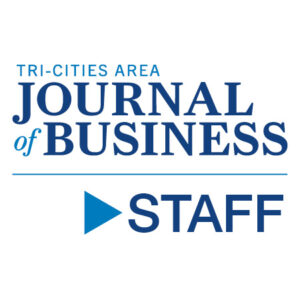
Home » Banking & Investment Briefs – August 2022
Banking & Investment Briefs – August 2022

August 12, 2022
FDIC clarifies what it covers. Hint: Not crypto
Failures by cryptocurrency companies and other non-bank institutions are not covered by the Federal Deposit Insurance Corporation.
The agency took the unusual step of issuing a fact sheet clarifying what is and is not covered by FDIC deposit insurance after some crypto companies inaccurately represented that crypto products could be eligible for FDIC coverage.
The move puts banks on alert to police crypto companies they deal with to ensure customers are not misled.
FDIC deposit insurance protects bank depositors for balances up to $250,000 when institutions it covers fail. No depositor has lost FDIC-insured funds as a result of a bank failure since the FDIC was established to insure deposits in 1934 as a result of the Great Depression.
FDIC insurance does not cover non-deposit products, which include stocks, bonds, mutual funds, securities, commodities and crypto assets.
It does cover checking accounts, negotiated order of withdrawal (NOW accounts, savings accounts, money market accounts, certificates of deposits, cashier’s checks, money orders and some other items issued by insured banks.
Go to bit.ly/FDICDoesNotCoverCrypto.
Bank and other accounts need beneficiaries
The Washington Department of Retirement Services advises seniors to ensure all their financial accounts identify the beneficiaries who will inherit assets.
The advisory covers both retirement services and other accounts.
The agency notes that not all assets pass through a will. Accounts that are jointly owned, have a named beneficiary, or are “payable upon death” typically supersede the terms of wills.
Beneficiaries will receive assets after a death, so it is important to identify them for each financial account. Events such as marriage, divorce and children may require that beneficiaries be changed.
Contact financial institutions to understand their rules and restrictions for designating and updating beneficiaries, and review accounts yearly to ensure the information is up to date.
If the beneficiary is a child or someone with a disability, the retirement system advises working with a tax advisor or finance professional.
Clients of the state retirement system can update beneficiaries to their accounts online at drs.wa.gov.
Numerica moves investment program to Cetera
Numerica Credit Union is converting its investment program to the Cetera Financial Institutions (CFI) platform.
Numerica, based in Spokane Valley, currently manages $200 million in investments and previously affiliated with CUSO Financial Services, a broker dealer that specializes in credit unions.
Numerica said the move takes advantages of Cetera’s investment services programs, tools and technology.
“Cetera has a long-standing reputation for helping banks and credit unions offer innovative investment services and solutions,” said Carla Cicero, Numerica president and CEO. “We are confident that Cetera and Numerica coming together will bring even more value to our members.”
Cetera, based in San Diego, oversees about $353 billion in assets under administration and $122 billion in assets under management, as of Dec. 31, 2021.
Numerica serves 165,000 members in central and Eastern Washington and north Idaho.
Bank of Idaho seals HomeStreet branch deal
Bank of Idaho has completed its acquisition of five HomeStreet Bank locations, including one in Kennewick.
The Idaho Falls-based bank announced plans to purchase the HomeStreet locations in May. The deal closed July 29. The former HomeStreet branches were converted to Bank of Idaho by Aug. 1.
The deal included the HomeStreet branch on West Clearwater Avenue but not its commercial lending office near Columbia Center mall.
Bank of Idaho retained staff members at all five branches. Bank of Idaho said it pursued the deal because of the similarities between Idaho and Eastern Washington in terms of agriculture, local business and small-town sensibilities.
With the expansion, Bank of Idaho operates 11 full-service locations and five mortgage offices.
Go to bankofidaho.com.
Mario Martinez merges with L2 Wealth Management
Mario Martinez, a Kennewick-based financial advisor with Northwestern Mutual, has merged with L2 Wealth Management in Spokane Valley, an affiliated wealth management firm of Northwestern Mutual. Martinez will continue to serve Tri-City clients in Kennewick.
Martinez became familiar with L2 Wealth Management partners Mark Lupton and Doug Lupton when he started his own practice in 2013.
He joined Northwestern Mutual after a career with the Ephrata Police Department.
“After I left the police department, I was looking for an opportunity where I could continue to help people in the Tri-Cities area,” he said. “Northwestern Mutual provided this path so continuing to operate as an advisor of Northwestern Mutual with L2 Wealth Management supports my goal to further serve my community.”
DFI announces return to on-site examinations
Washington organizations regulated by the state Department of Financial Institutions can look forward to meeting their examiners in person.
The state agency said that as Covid-19 restrictions are lifted, its Consumer Services Examination Unit is returning to conducting some routine examinations on-site.
DFI regulates state-chartered depository institutions, which include banks, credit unions, savings banks, foreign bank branches and trust companies.
Its reach includes non-depository institutions such as check cashers, consumer loan companies, escrow agents, money transmitters, mortgage brokers and loan originators and payday lenders, as well as the securities industry.
Not all examinations are conducted on-site. In 2019, 77% were off-site.
The examinations unit considers the company’s overall risk profile, the scope of the examination and the amount of business the entity conducts in the state when deciding whether to conduct the exam at a company’s headquarters off-site.
Companies quartered in Washington state do not incur travel expenses for examiners.
Examiners will follow safety guidelines established in the Healthy Washington Roadmap to Recovery, which includes current guidance from the Centers for Disease Control and Prevention.
Go to dfi.wa.gov.
Business Briefs Banking & Investments
KEYWORDS august 2022





